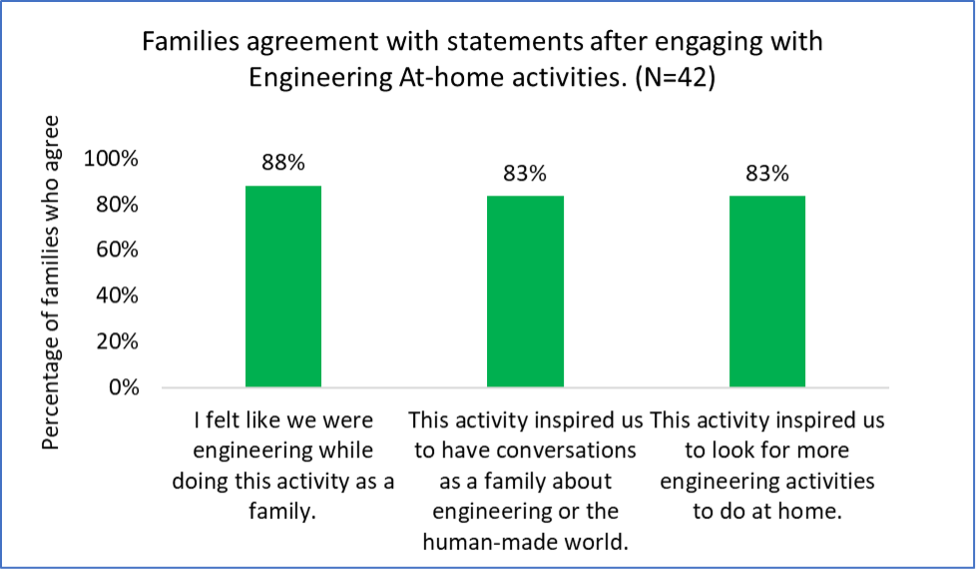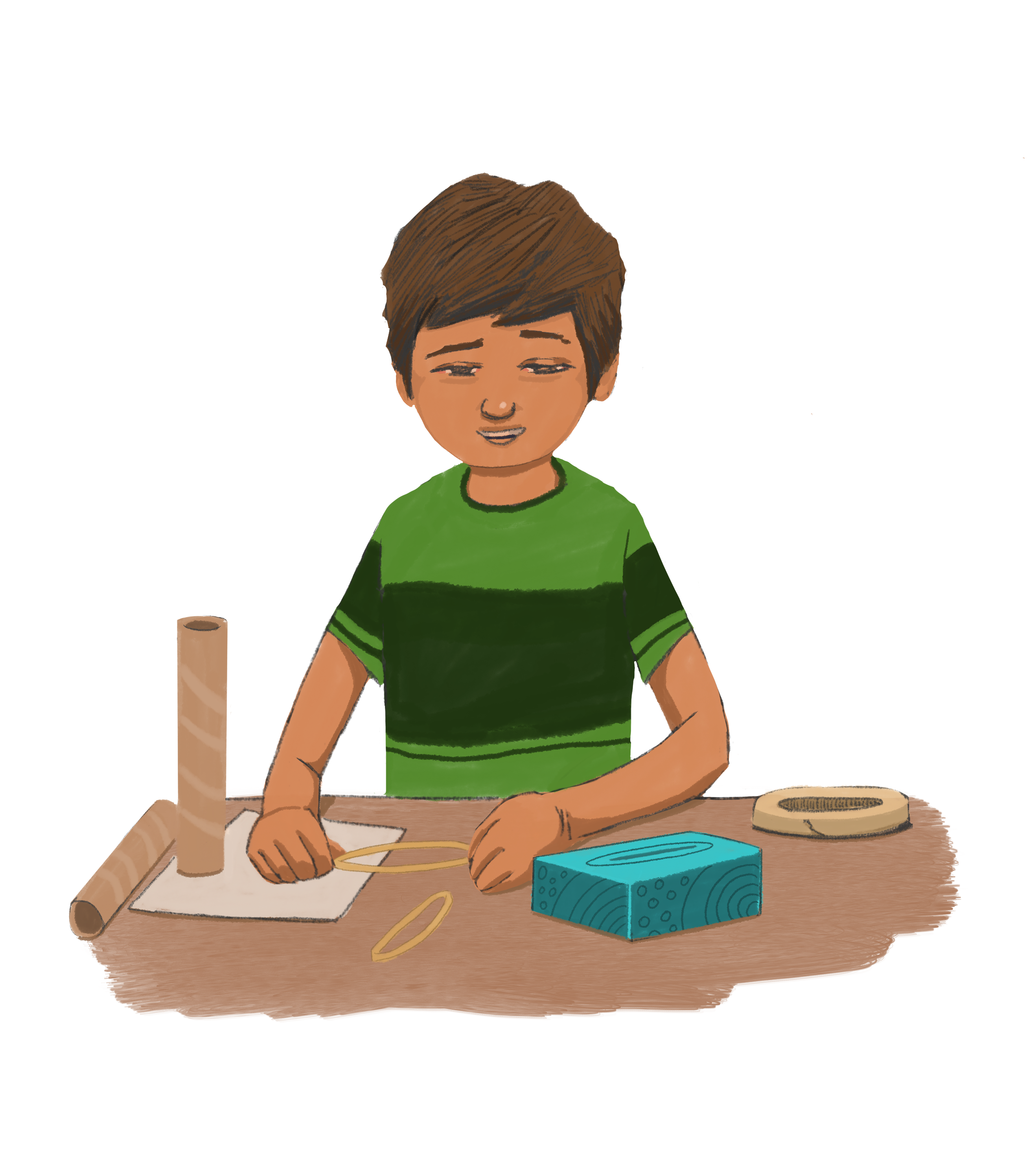Preliminary evidence suggests EiE Families is effective
Like all of our products, the EiE Families resources went through multiple rounds of research, development, testing, and improvement. Results of formative and summative data collection suggest that activities supported families’ understanding of engineering as a discipline and positively impacted perceptions of themselves as engineers. Families also agreed that these activities inspired them to have conversations about engineering and the human-made world.

Families Agreement Before and After Engaging with Engineering At-Home Activities. Blue dashed bars show agreement before doing activity and green bars after doing activity. 71% of families understood what engineers do before the activity, 98% after. 55% felt confident talking about engineering with their kids beforehand, 95% afterwards. 48% of children believed they could engineer beforehand, 90% after the activity. Beforehand, 48% of families felt confident solving engineering problems together, and afterwards 93% did.

Families Agreement with Statements After Engaging with Engineering At-Home Activities. After doing Engineering At Home projects, 88% agreed with the statement “I felt like we were engineering while doing the activity as a family.” 83% said “The activity inspired us to have conversations as a family about engineering or the human-made world.” And 83% agreed that “This activity inspired us to look for more engineering projects to do at home.”
